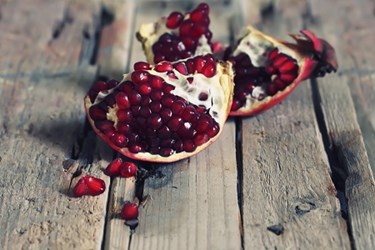Scientists Turn To Pomegranate To Develop Dementia Drugs

Scientists from the University of Huddersfield reported that dementia and neuro-inflammation may be curbed by a natural compound found in pomegranate.
Dr. Olumayokun Olajide, a specialist in the anti-inflammatory properties of natural products such as fruits and herbs, reported the findings of a two-year study that he conducted together with co-researchers. According to the team, the painful inflammation that characterizes illnesses such as rheumatoid arthritis and Parkinson’s disease could be reduced or slowed down by the polyphenol punicalagin through its inhibition of inflammation in specialized brain cells called micrologia. Inflammation of these cells starts the cycle of the destruction of more and more brain cells, leading to progressive worsening of Alzheimer’s disease in patients.
Dementias such as Alzheimer’s affect around 800,000 in the U.K. alone, with more than 160,000 new cases diagnosed each year. At least 44.4 million around the world suffer from dementia, and that figure is expected to climb in the coming years. There is currently no cure for the disease, but punicalagin could be used to prevent it or slow down its progression.
“But we do know that regular intake and regular consumption of pomegranate has a lot of health benefits – including prevention of neuro-inflammation related to dementia,” said Dr. Olajide. Most anti-oxidant compounds are located in the outer skin of the fruit, not in its inner soft part. He recommends juice products that are 100 percent pomegranate, which contains an estimated 3.4 percent of punicalagin. The compound will be useful in diseases with other forms of inflammation, such as cancer, Parkinson’s disease, and rheumatoid arthritis, he said.
Together with Dr. Olajide’s colleague and collaborator organic chemist Dr. Karl Hemming, the team will try to produce compound derivatives that could later be developed into new, oral drugs that will be used to stop neuro-inflammation.
The team’s findings were published in the journal Molecular Nutrition & Food Research. Dr. Olajide will disseminate his work at upcoming academic conferences.
